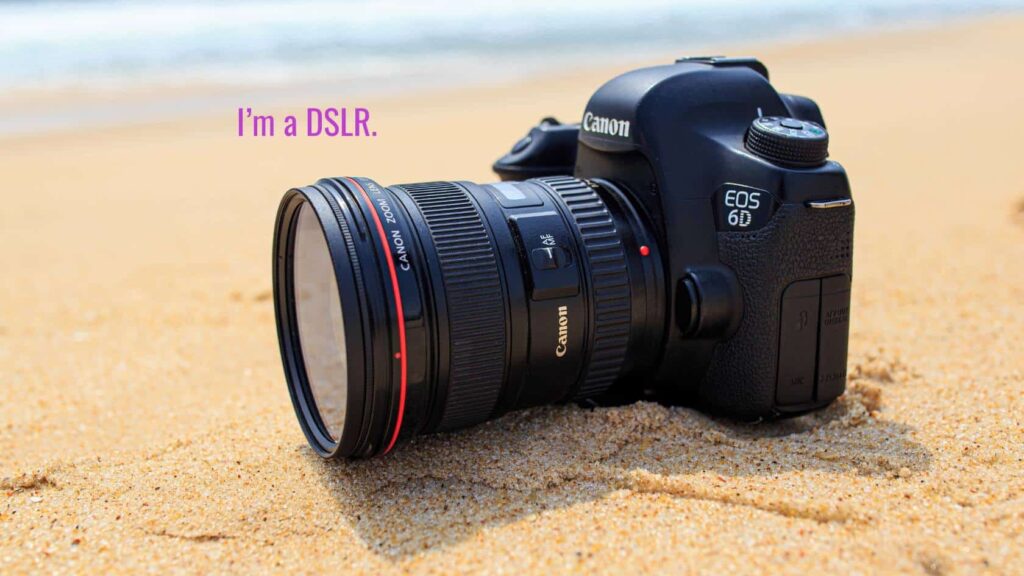This Is How You Can Learn How to Use a Filmmaking Camera
If you want to learn how to use a filmmaking camera, it’s critical to get started with whatever camera you have on hand. Don’t wait until you have the perfect camera.
Written by Colette Nichol, Solo Filmmaker and Story Strategist
Estimated reading time: 6 minutes
Filmmaking is an art form that combines storytelling with technical skills. At the heart of this art form is the camera. If you don’t know how to use a camera, then gaining filmmaking skills will be nearly impossible.
Why? Because most people get started shooting and editing their own work until they have the budget to put together a crew that handles the technical elements.
Steven Spielberg learned filmmaking by shooting short films and a feature himself, on his own, with his own camera.
And if it’s good enough for him…well, it’s good enough for the rest of us!
So in my opinion, understanding the different types of cameras and how to use them is crucial for any aspiring filmmaker.

Types of Cameras in Filmmaking
Filmmaking cameras range from accessible DSLRs to high-end professional cinema cameras.
DSLRS
DSLRs (Digital Single-Lens Reflex) cameras are a popular choice for beginners due to their affordability and versatility.
They are excellent for learning the basics of composition and camera settings. In particular, every beginner filmmaker needs to learn manual exposure and how to shoot locked off aka. on a tripod. Using a DSLR is a great way to get started with the basics of filmmaking.
MIRRORLESS
Mirrorless cameras, a newer technology, offer the advantages of DSLRs but in a more compact form. They are known for their excellent video quality, fast shooting speeds, and superior autofocus systems.
CINEMA CAMERAS
For professional-grade film production, cinema cameras are the standard.
These cameras offer superior image quality, greater control over depth of field, and are designed to work seamlessly with various cinematic accessories and rigs.

Basic Functions of a Filmmaking Camera
Understanding the basic functions of a camera is vital.
But look, we all start at the same place. Nobody hops out of the womb with an innate understanding of digital cinematography.
I got started with digital cinematography when I was in my late 20s and taught myself by reading books, watching videos, taking online courses, and practicing like crazy. You can too!

- Aperture: Controls the lens’s opening, affecting the amount of light entering the camera and the depth of field of the image.
- Shutter Speed: Determines how long the camera’s sensor is exposed to light, impacting motion blur and exposure. The shutter is a window of sorts that’s inside the camera body and opens and closes to let light into the camera.
- ISO: Adjusts the camera’s sensitivity to light, influencing the brightness of your footage and potential noise. ISO allows you to shoot at night even in low light.
- White Balance: Ensures that the colors in your footage are accurate by adjusting to the color temperature of your light source. The colour temperature of light is measured in degrees Kelvin which you can adjust manually on most cameras. You can also use presets to tell the camera what the light in the space is like, whether it’s tungsten bulbs, fluorescent lights or natural daytime light, etc.
- Focus: The focus ring on a lens allows you to control which part of your scene is in focus. It’s critical to make sure you nail focus when filming humans. Try to get one or both eyes in focus.

These settings significantly impact your footage. If you get exposure wrong, everything else falls apart. Plus, if your exposure is really REALLY off, then it’s hard to recover anything usable in post i.e. when editing.

Questions
What is a good starter camera for filmmaking?
For beginners, entry-level DSLRs or mirrorless cameras from brands like Canon, Sony, or Panasonic are excellent choices. They offer a good balance between quality, functionality, and price.
My favourite started camera for filmmaking right now is either the Canon R7 or R8 if your budget allows you to get either of those cameras.
But check out the full blog post about the best cameras for beginners which covers this topic in depth.
What cameras do most filmmakers use?
Professional filmmakers often gravitate towards high-end cinema cameras from brands like ARRI, RED, or Sony’s cinema line. These cameras offer the best in image quality and versatility.
However as a beginner these cameras are so complex and expensive that they’re almost entirely useless.
It’s also good to know that the more sophisticated the camera the larger your file sizes will be which requires a lot of storage space. A feature film shot on an ARRI or RED camera could require hundreds of TBs of storage.
Is a GoPro good for filming?
GoPros are great for action shots, POV sequences, and situations where traditional cameras can’t go. They’re not typically used as primary cameras but are excellent for supplementary footage in videos and documentaries.
Which camera does Christopher Nolan use?
Christopher Nolan is known for his preference for traditional film cameras, especially IMAX cameras. He often uses cameras from brands like ARRI and Panavision, renowned for their film cameras.
Do filmmakers still use film?
Yes, some filmmakers still prefer films for their unique aesthetic and quality.
Film is less common due to the convenience and advancements in digital cameras, but it remains a respected medium in the industry. It’s having somewhat of a revival right now within indie filmmaking circles.
Final Thoughts
Choosing and using the right camera is a foundational filmmaking skill.
Whether you start with a DSLR or mirrorless camera, understanding how the camera functions and how to manipulate they settings to achieve your artistic vision is crucial.
Remember, the best camera is the one that you can use to effectively tell your story. And beyond that, the best camera is the one you already have!
Don’t let an obsession with gear stop you from getting started and making short films.
More Filmmaking Articles
⭐ Filmmaking Basics Every Beginner Needs to Know
⭐ Cinematic Lighting: Epic Film Lighting Guide for Beginners
⭐ iPhone Filmmaking Tips for Beginners

About the Author
Hi! I’m Colette Nichol. I’m a solo filmmaker and story strategist based out of rainy Vancouver, Canada. I’ve been making videos and micro films for small businesses and global brands since 2014.
Plus, I LOVE to help aspiring filmmakers pursue their dreams and start making films. This blog is designed to help you gain the knowledge you need to become a filmmaker.
If you want more, get on the waitlist for the Story Envelope Academy Solo Filmmaking Mentorship Program. It opens up one time per year and is the best way to become a filmmaking or video pro fast!
CLICK HERE to get on the solo filmmaking mentorship waitlist.